- Heart & Soil Newsletter
- Posts
- Week 8: Embrace ecological cycles, and include animals if you can
Week 8: Embrace ecological cycles, and include animals if you can
The more complex your home becomes, the more it mirrors ecological systems
Hi! I'm Jo, writing from Heart & Soil homestead, a 1-acre homestead in the Far South of Cape Town, South Africa. Every week I share inspiration and education for your growing journey. Thanks so much for reading!
Welcome to Ten Things from Ten Years on our homestead, where I’ll be reflecting on major tipping points framing our time on the farm. This is week 8, where I reflect on the impact of animals on ecological cycles, and on our perceptions of our lives.
The earth does not belong to us; we belong to the earth. All things are connected like the blood that unites one family.
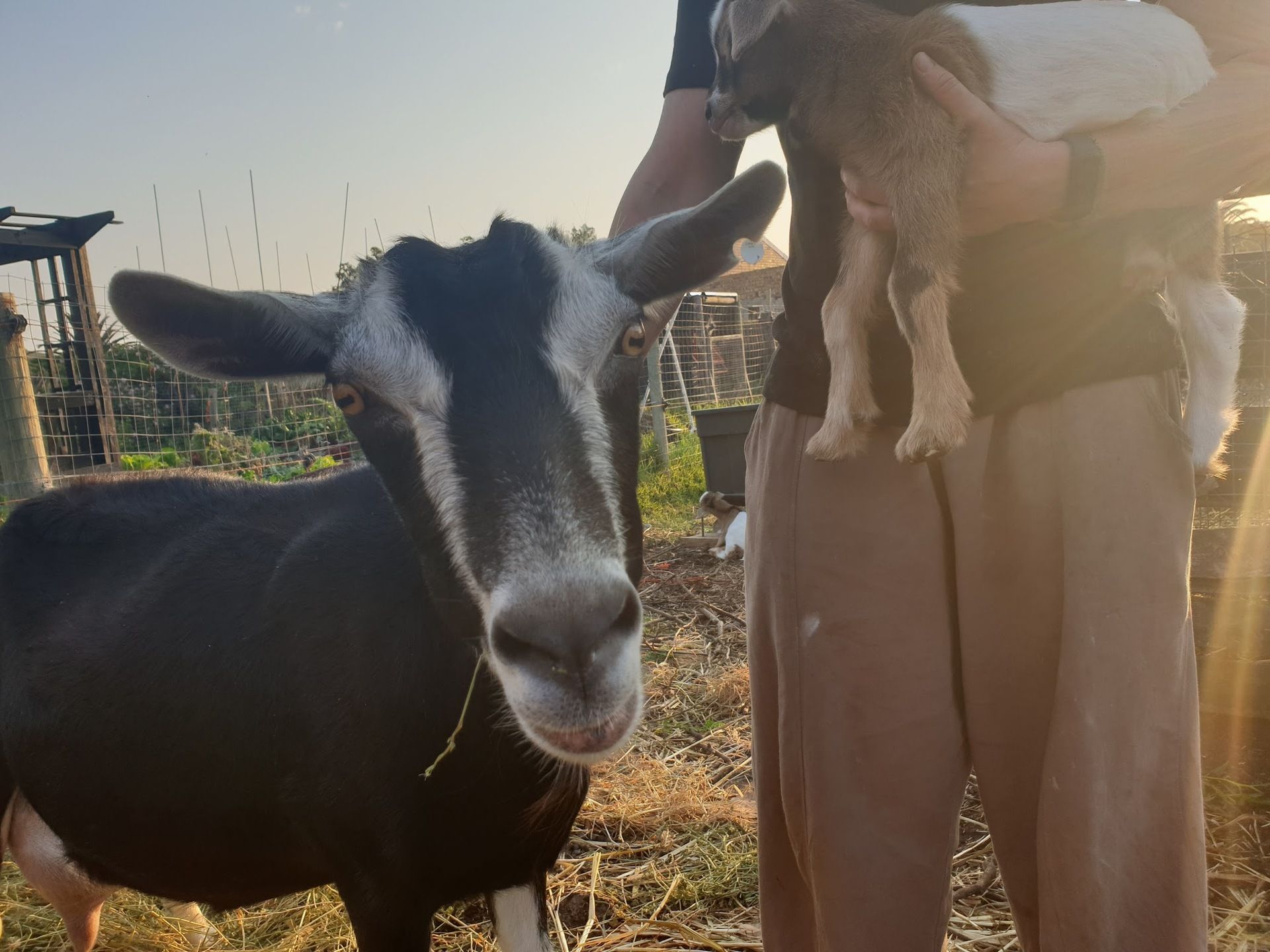
Our milking cycle shapes our year and our diet: this week our four does will hopefully give birth, and the new cycle will begin.
Embrace ecological cycles, and include animals if you can. Life, death, animals, seasons - managing space for the benefit of all who live in it becomes a practice in stewardship.
Organic agriculture is heavily dependent on animals, and ecological cycles depend on inputs of animal manure - which could, potentially, be limited to humanure for vegans. Most closed-loop systems require animals to function. Our homestead is shaped by vermicastings, black soldier fly larvae, duck, goat, and chicken manure, humanure, and for many years, horse manure that was dropped off. While compost can be produced without animal inputs, in the long term this is likely to create nutrient deficiencies, particularly nitrogen and phosphorus cycles that animals facilitate.
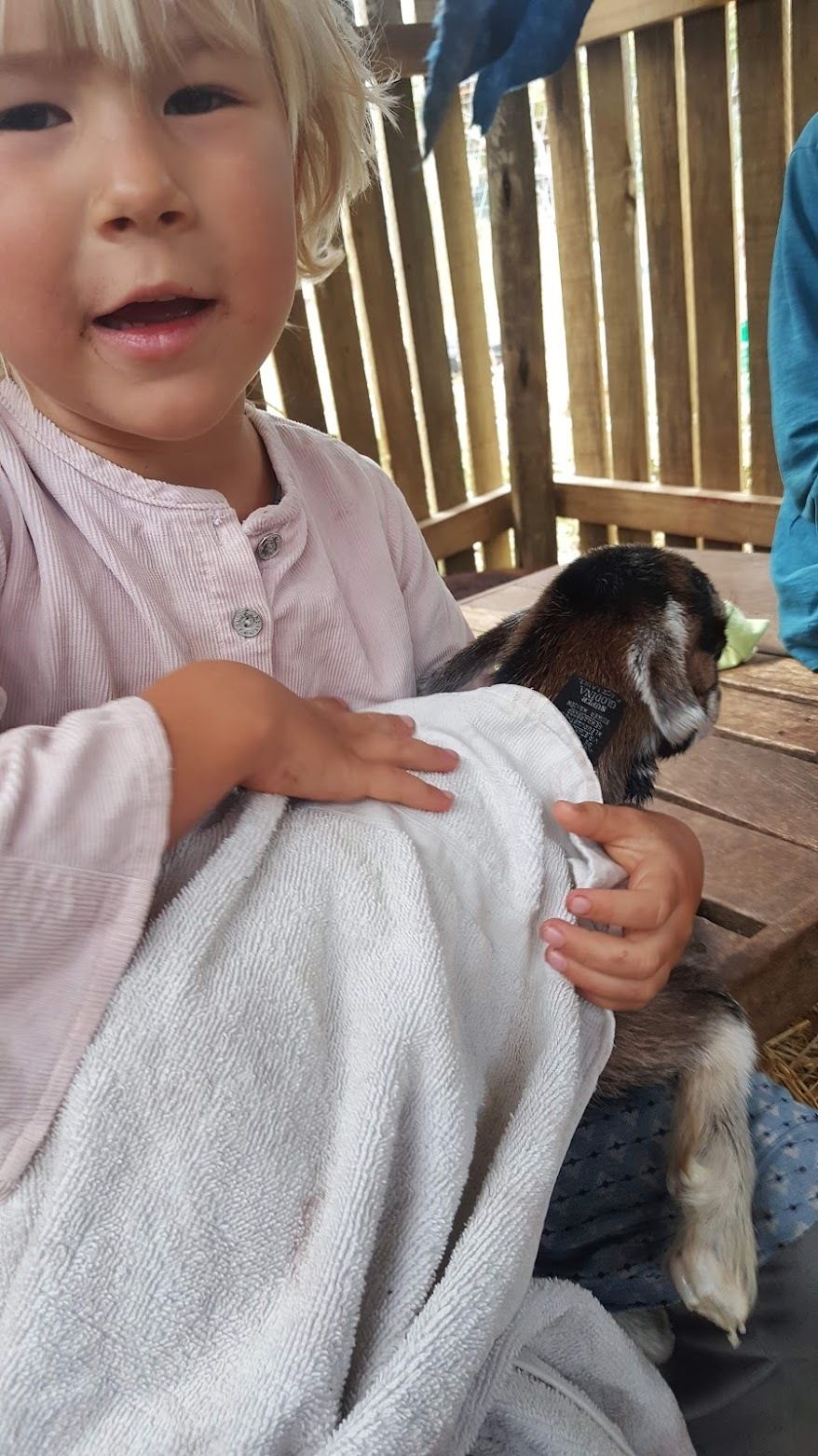
Our kids’ lives are deeply shaped by our animals. Hana in 2021
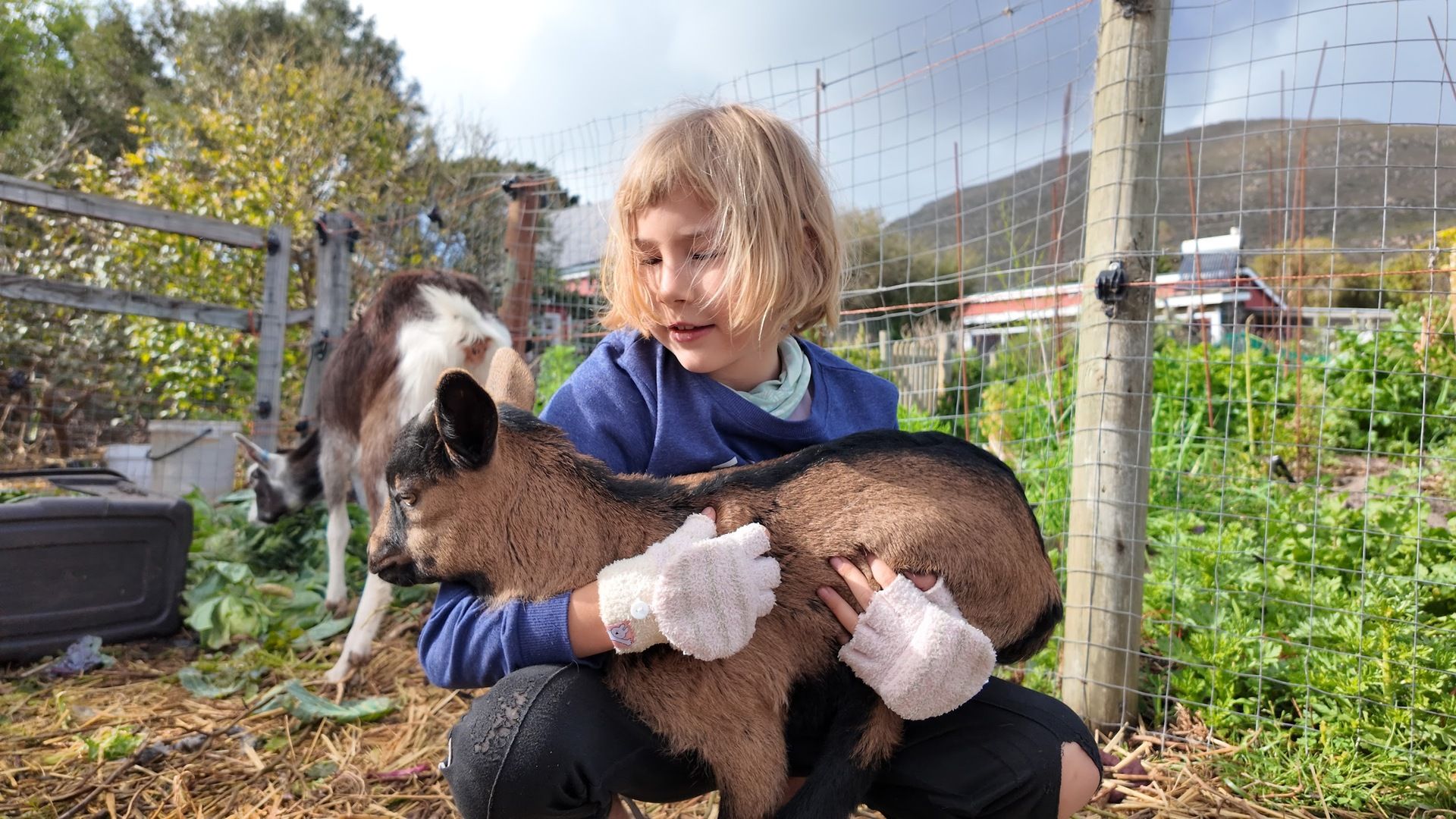
Hana in 2024
The more complex your homestead becomes, the more closely it mirrors natural ecological systems. Animals are part of this cycle, and figuring out how to give them the right balance of safety, protection, and freedom requires significant time and effort.
We started with chickens and ducks, then added quail, geese and goats about five years ago.
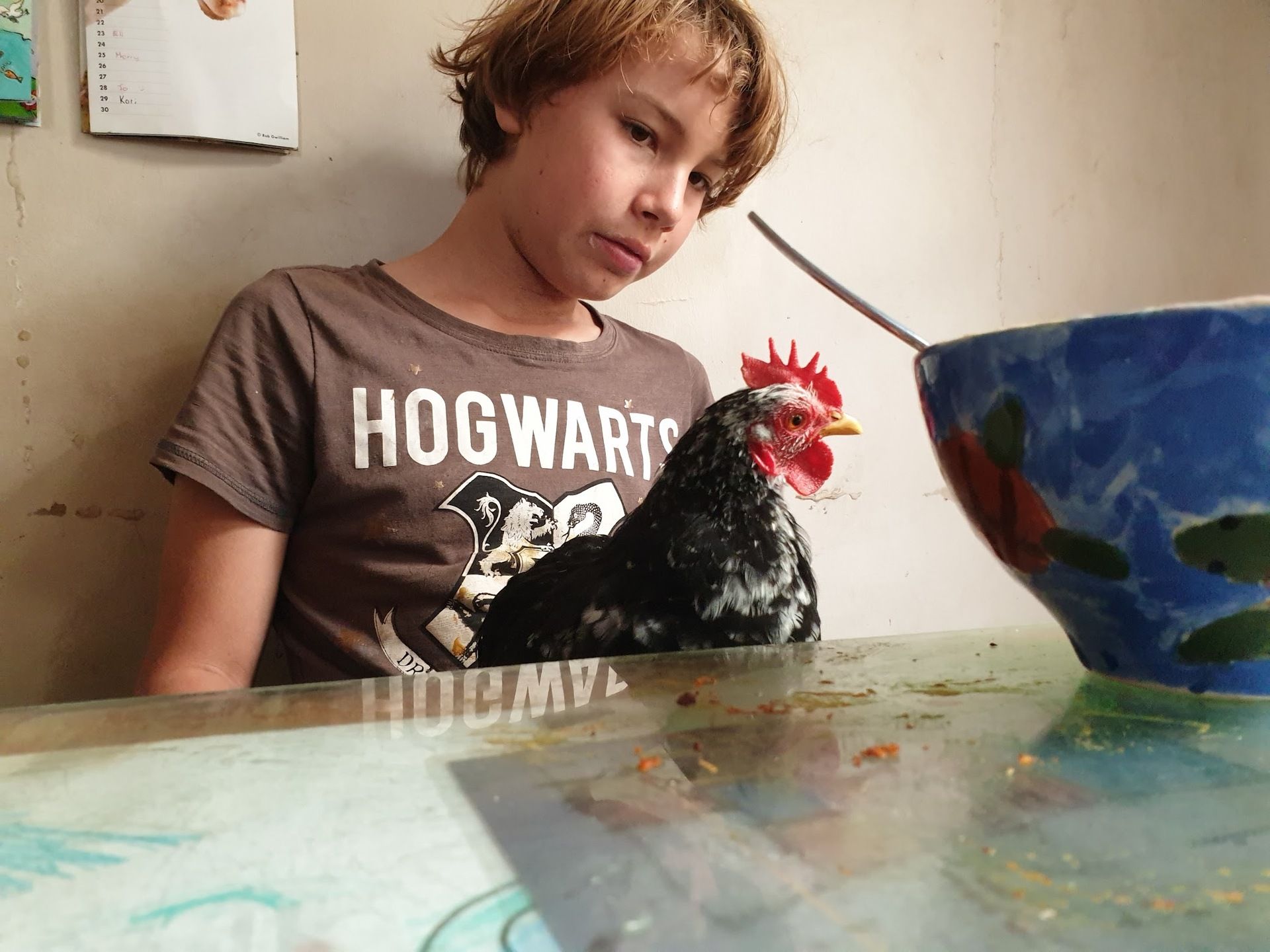
Some animals become part of our family
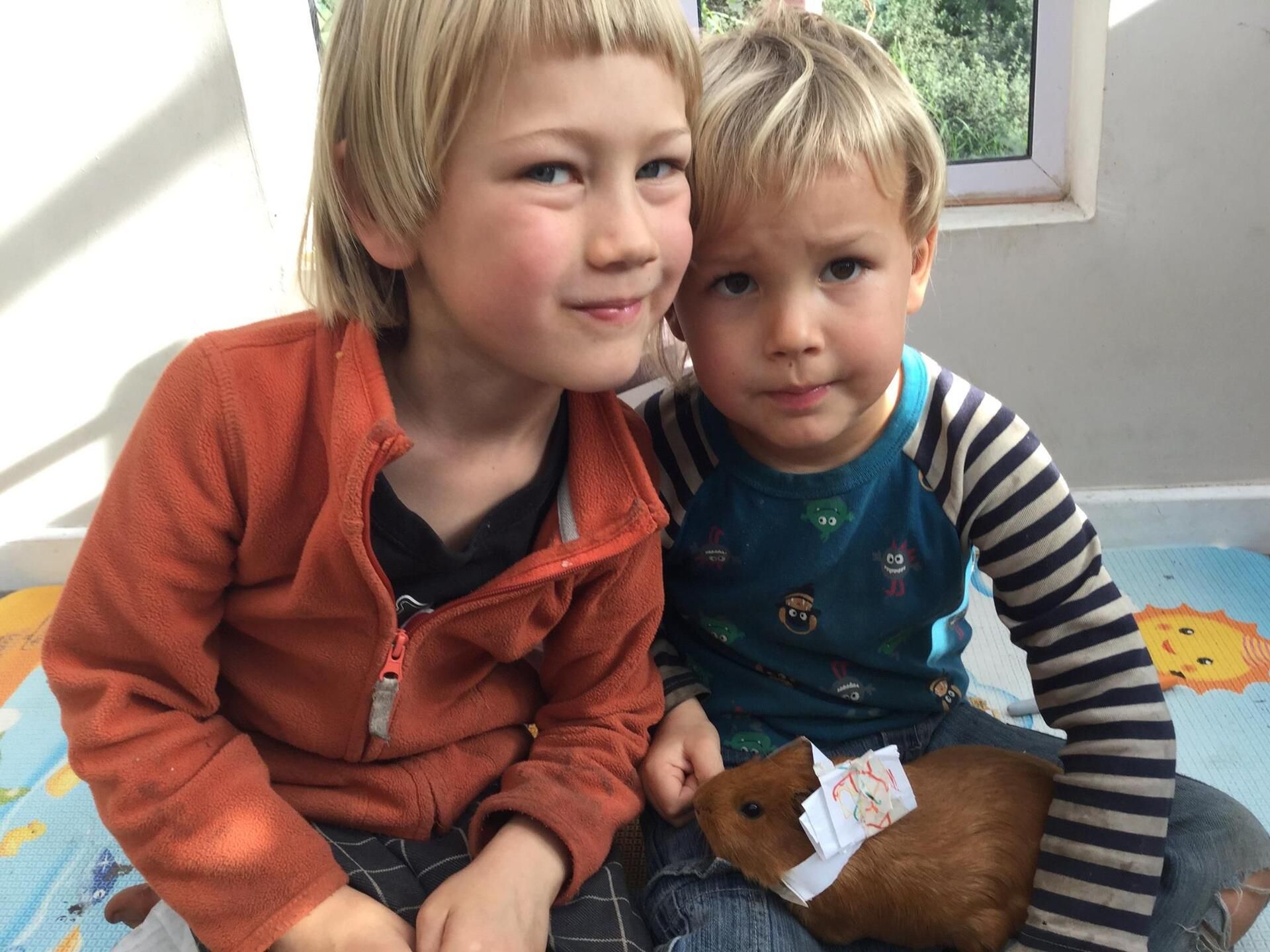
We have received guinea pig rescues since we started on the farm in 2015, and they’ve been beautiful companions, particularly for Eli. (Noah and Eli in 2015)
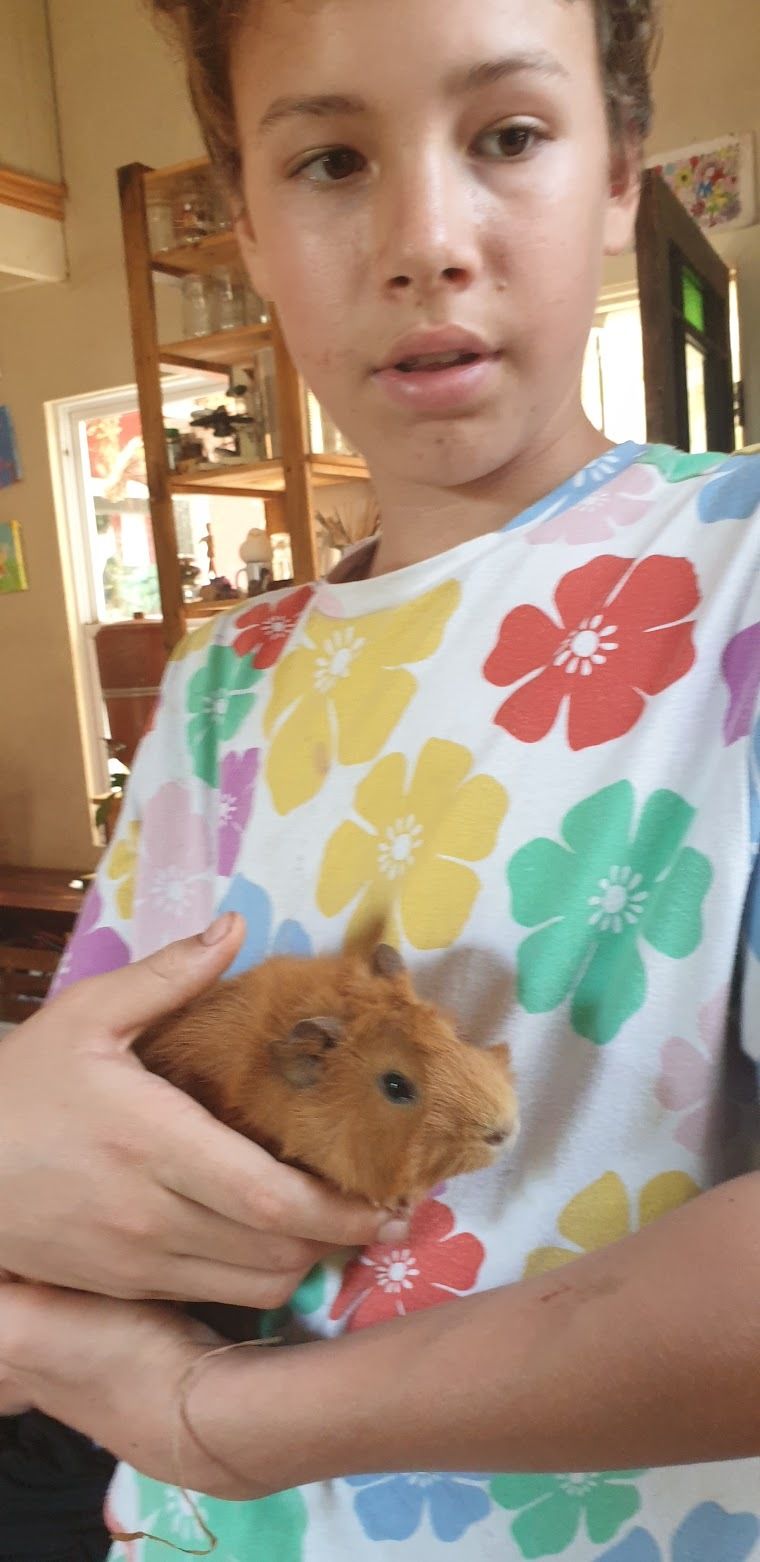
Eli in 2024
Our goats had a massive positive impact on our farm. Beyond their milk and manure, they highlighted the importance of systems and connections in new ways. Extra plant matter was fed to the goats, who turned it into milk and manure, which became more plant matter, and on and on. They also helped us manage invasive Port Jackson and convert branches into fertility.
The cycles of death and life on the farm are integral to how we think about our homestead. There are contradictions we navigate - between pets and livestock, between roosters we love and roosters we eat. These cycles teach us about the reality of sustaining life through death, the weight of taking responsibility for other lives, and the deeper rhythms that urban life often shields us from.
Animals bring unexpected lessons about care, routine, and being needed - they root you to place and season in ways that plants alone cannot.
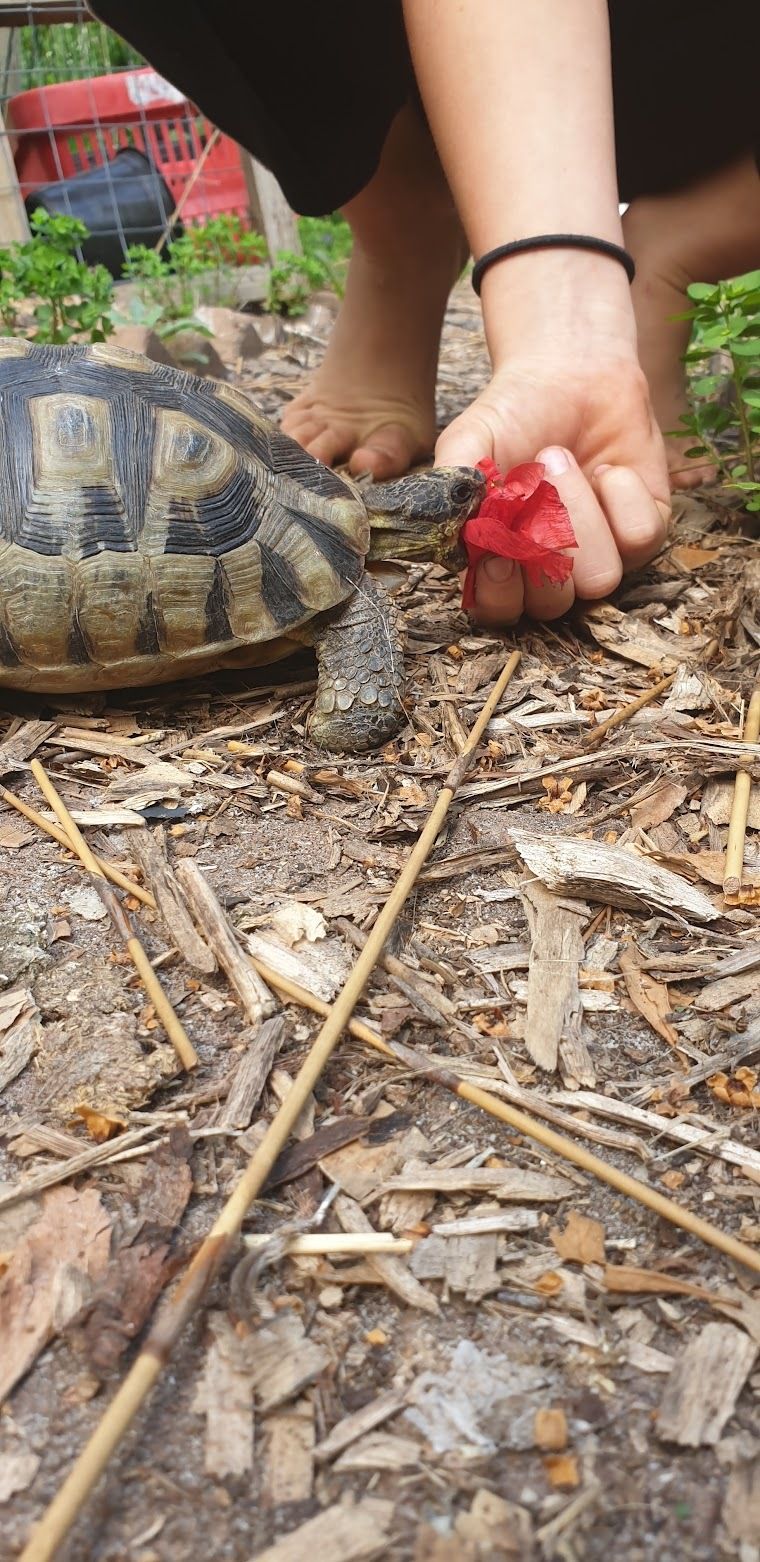
Some creatures, like chameleons, tortoises and birds, arrive naturally, and we try to keep the farm safe and accommodating for them to come and go as they like. And sometimes they become really tame and part of our lives in the process.
Workshops
2 Aug 9-10:30 Veg growing workshop I’m slowing down a little on topic-related workshops for this year, as we plan our NPO and how to share our learning and systems more broadly. If you have a company group or a group of family or friends that you’d like to learn composting, growing, chicken rearing, sourdough baking, cheesemaking or some other topic, let me know. It could be a fun way to connect with colleagues, friends and family. |
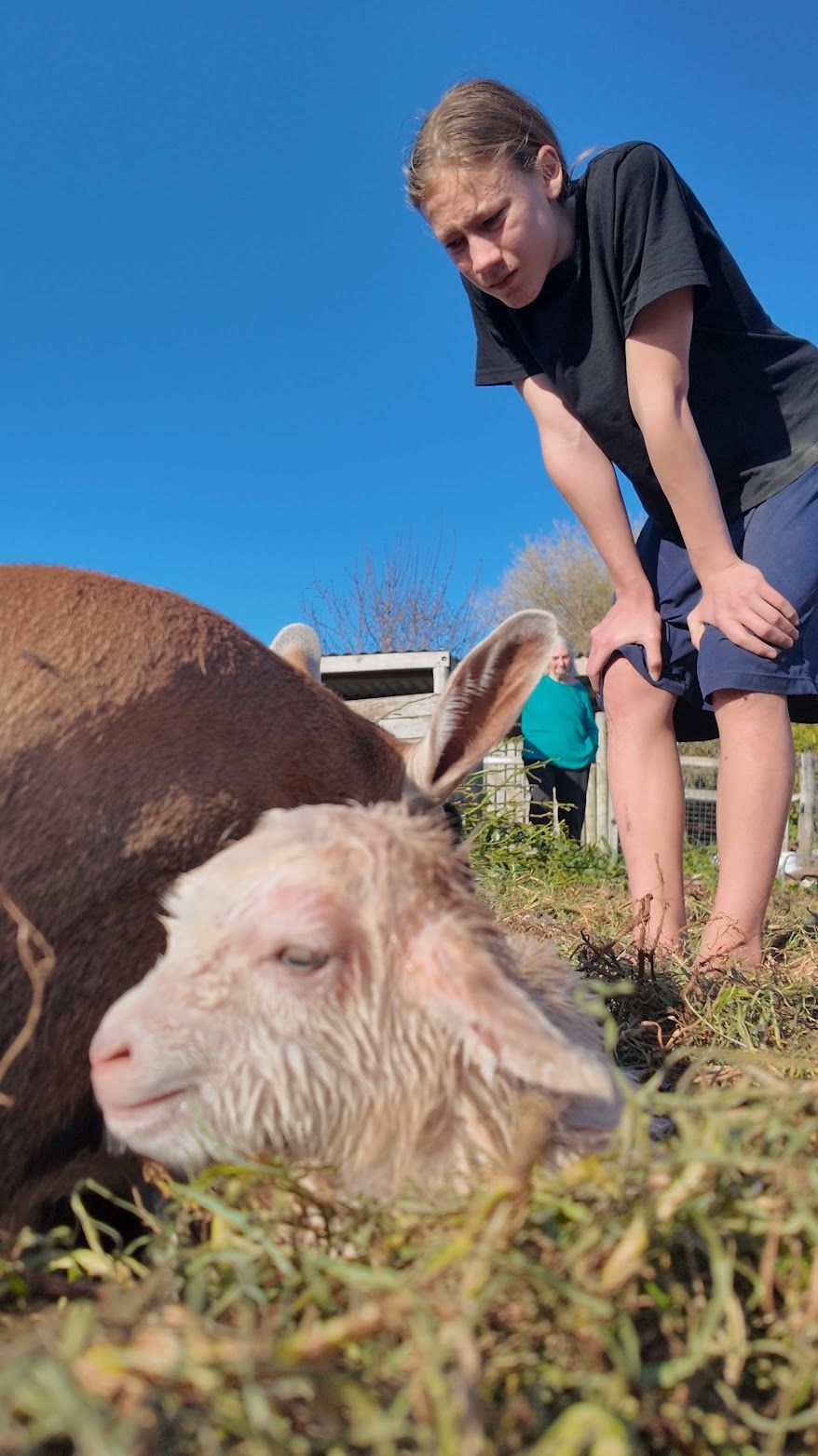
Going into our 6th season of goat births, our kids know what is normal and when to intervene in a birth, and I’m always amazed by how intuitively they are much more patient than I am.
If you are enjoying our newsletter, consider forwarding on to someone in your community. If you received this from a friend, you can sign up here

Reply